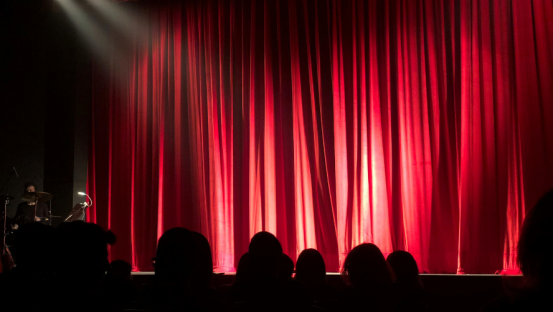Why Authenticity Is So Important for Public Speakers

There are many vital traits that go into making a good public speaker, from the ability to convey complex ideas in simple language to the ability to talk to people and to overcome the anxiety of getting up on stage in the first place.
But perhaps the most important factor of all is authenticity, because if your audience perceives you to be inauthentic, they’re not going to be receptive of the message that you’re trying to deliver.
But what is authenticity and what makes it so important to public speakers in the first place? Let’s take a closer look and find out.
What is Authenticity?
Merriam-Webster defines authenticity as the phenomenon that occurs when something is “worthy of acceptance or belief as conforming to or based on fact”, as well as “true to one’s own personality, spirit or character”.
Psychology Today builds upon this definition by explaining, “Individuals considered authentic are those who strive to align their actions with their core values and beliefs with the hope of discovering and then acting in sync with their true selves.”

For public speakers, this means making sure that whenever you take to the stage, you’re staying true to yourself. That means that if you’re passionate about public health, you shouldn’t accept a gig that’s sponsored by a tobacco company.
Why Authenticity is So Important for Public Speakers
1. It helps with personal growth
One of the best things about being a public speaker is that it provides you with plenty of opportunities for personal growth. The problem is that if you’re hiding behind a persona and lacking authenticity, you’ll hinder that growth or even put a stop to it completely. The only way to learn more about yourself is to spend more time being yourself.
2. It helps us to share our true thoughts and insights
If we’re hiding behind a persona when we talk, we reduce the likelihood that we’ll share our innermost thoughts, feelings and insights, and yet these are what can benefit an audience the most. People don’t engage with a speaker if they act like a robot, and so by being as authentic as possible, you make it easier for them to pay attention to what you’re saying and to learn the lessons you offer.
3. People can tell when you’re being inauthentic
People are surprisingly perceptive, and many of us can easily tell when someone isn’t being authentic. There are subtle indications in body language and manner of speaking that we’ll pick up on it even if we’re not overtly aware of it. Because of that, it’s a bad idea to try to be someone that you’re not because it will break that bond of trust with your audience.
4. Imperfections make us human
We’re only human and so we all make mistakes. Sure, it’s a good idea for us to try to avoid mistakes if we can so that we can give the best performance possible, but if we do make them, we should embrace them as just being part of our fundamental humanity. Believe it or not, those little mistakes can help us to come across as being more relatable and remind our audience that we have much in common.
5. Your message is more important than a persona
One of the biggest mistakes that newbie public speakers make is that they focus so hard on their persona that they forget to focus on their message. We owe it to our audience to remember that our message is what people are there for, and not whatever persona we might be attempting to project.
6. It makes us more relaxed
Being true to yourself makes you more relaxed and helps you to settle on stage. If you think about it, trying to maintain a persona while talking just gives you something extra to focus on that can lead to you making mistakes. It’s much better to leave your ego in the dressing room so that you can relax into your presentation and give a better performance.
7. It makes you sound more natural
We’ve all seen a public speaker whose words have come over as stilted and unnatural, and when that happens, we tend to disengage from what they’re talking about and let our minds wander instead of paying close attention. By being authentic and true to ourselves, we sound more natural and therefore more confident, and we also avoid alienating our audience.
8. It’s easier
Being authentic is just easier. Why bother putting in that extra effort to pretend to be someone that you’re not, when you could take the simpler option and just be yourself. And as we discussed in some of the earlier points on this list, if you save yourself some effort here, you can reinvest that where it’s going to have the biggest impact, on your actual presentation.
Conclusion
Now that you know our thoughts on why authenticity is so important for public speakers, we’d love to hear from you. Do you think that it’s important to be authentic? And how do you practice authenticity as part of your public speaking engagements?
As always, we’d love to hear your thoughts on this, so be sure to let us know in the comments so that we can keep the discussion going. You can also follow us on your favorite social networking sites. We’ll see you soon with another article!





